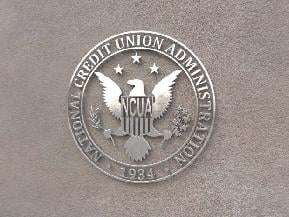SAN DIEGO -Credit unions are being advised to launch a high-tech war against the technology that is costing financial institutions nearly $20 billion annually in check fraud losses. “We’re going to fight technology with technology,” insisted Deborah Humbert, senior risk management specialist with the CUNA Mutual Group. “That’s what we have to do.” Speaking at CUNA Mutual’s ninth annual Discovery Conference here, Humbert said credit unions needed to act now to stem the flow of millions of dollars in check fraud and forgery losses from credit unions. She said CUNA Mutual paid out $28 million in claim losses in 2003, down from a record $40 million in 2001. CUNA Mutual reported nearly 8,000 claims in 2003. FBI and U.S. Treasury Department figures indicate that annual check fraud losses from all financial institutions were almost $20 billion annually. She blamed readily available technology – personal computers, software, scanners, printers and the Internet – as well as expanding fields of membership in the credit union industry as some of the reasons for growing check fraud losses. “Technology is the greatest reason (check fraud) is growing,” she told an educational breakout session Thursday (June 10). “Technology has made it so easy for the fraudsters to commit fraud. It makes it so easy for them. And it’s a very profitable form of business.” Humbert, who was joined in the presentation by Jennifer Coughenour, vice president and national sales manager for Primary Payment Systems, said she believed that credit unions may also have brought on some of their own troubles. “With the opening of our doors, we allowed in a lot of extra risk,” she said, referring to such things as community charters. Other factors she cited for check fraud included employee turnover, organized crime and shortened check-hold periods under Reg CC. Despite the challenges, Humbert said credit unions could still continue to offer excellent member service. “I contend we can still offer premium service to our members while still effectively managing risk of loss using technology,” she said. During her 90-minute presentation, she offered numerous suggestions for limiting losses, from better training for front-line staff to third-party solutions such as those offered by Primary Payment Systems. She also urged credit union officials to work with their data processing vendors to implement better and faster reports to alert them to frauds. Such reports, she said, could show such things as multiple deposits at different branches or ATMs, excessive deposits and suspected check kiting. Other suggestions included placing holds on checks deposited at ATMs, flagging new accounts for a minimum of six months or until they become established and segmenting members by the age of their account and their credit scores, which she said was a “very effective tool.” “Credit bureau reports are an excellent new account screening tool,” Humbert said, adding that they also help prevent identity theft. “That credit bureau report is worth every penny that you’re paying for it.” Those with low credit scores, in the 400s and 500s, would be given a limited range of services, she said. “It’s those 4s and 5s that we need to be kind to – that’s who we are – but it’s also those 4s and 5s we need to be extra careful with,” Humbert said. She advised officials to use programs to verify such things as Social Security, their year of issuance compared to the member’s information and to verify a member’s employment. Primary Payment Systems is part of First Data Corp. -
 Search
Search














 Copyright © 2024 ALM Global, LLC. All Rights Reserved.
Copyright © 2024 ALM Global, LLC. All Rights Reserved.